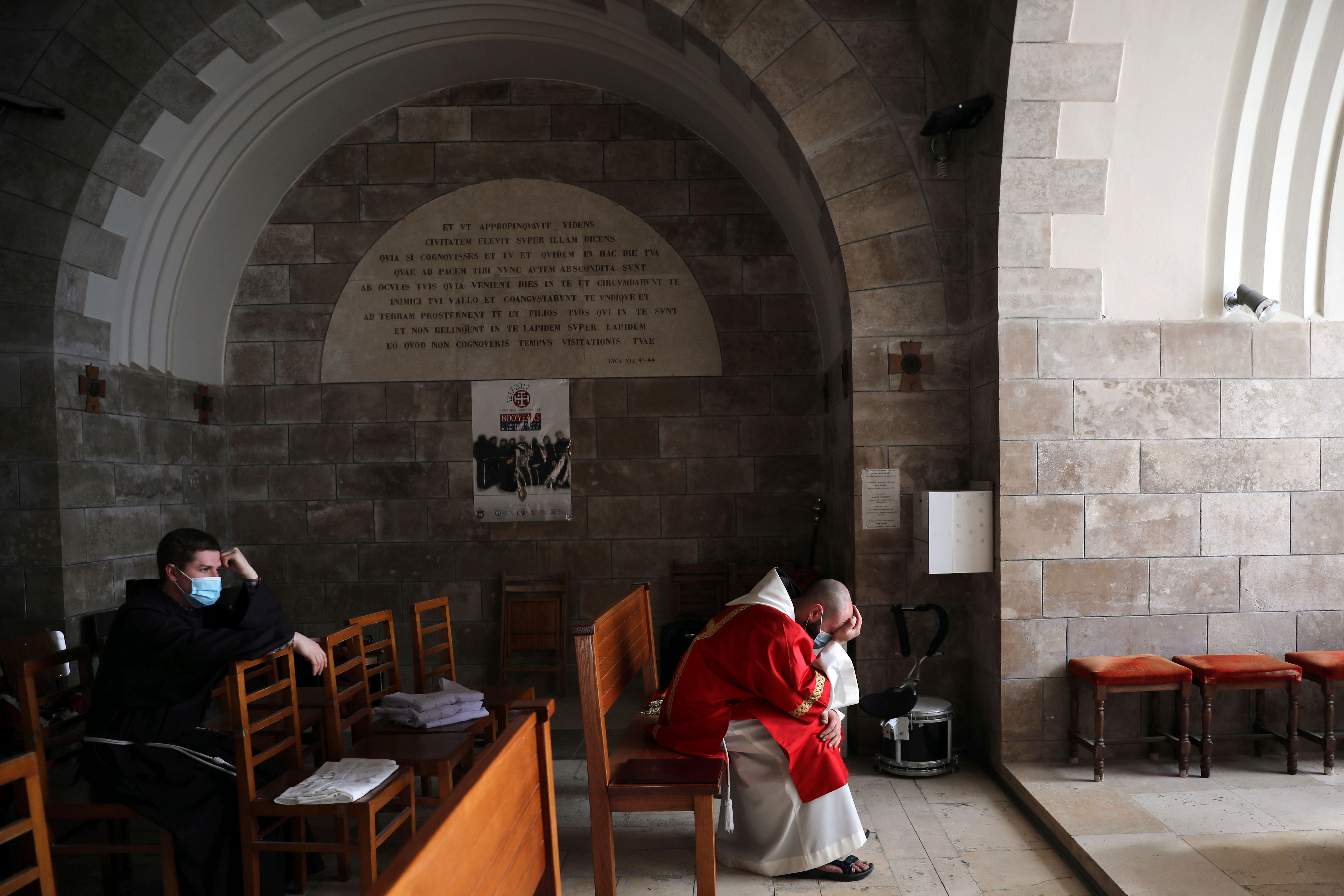Christians mark Good Friday as holy sites gradually reopen
Christians in the Holy Land are marking Good Friday this year amid signs the coronavirus crisis is winding down

Your support helps us to tell the story
From reproductive rights to climate change to Big Tech, The Independent is on the ground when the story is developing. Whether it's investigating the financials of Elon Musk's pro-Trump PAC or producing our latest documentary, 'The A Word', which shines a light on the American women fighting for reproductive rights, we know how important it is to parse out the facts from the messaging.
At such a critical moment in US history, we need reporters on the ground. Your donation allows us to keep sending journalists to speak to both sides of the story.
The Independent is trusted by Americans across the entire political spectrum. And unlike many other quality news outlets, we choose not to lock Americans out of our reporting and analysis with paywalls. We believe quality journalism should be available to everyone, paid for by those who can afford it.
Your support makes all the difference.Christians in the Holy Land are marking Good Friday this year amid signs the coronavirus crisis is winding down, with religious sites open to limited numbers of faithful but none of the mass pilgrimages usually seen in the Holy Week leading up to Easter.
Last year, Jerusalem was under a strict lockdown, with sacred rites observed by small groups of priests, often behind closed doors. It was a stark departure from past years, when tens of thousands of pilgrims would descend on the city's holy sites.
This year, the Church of the Holy Sepulchre, built on the site where Christians believe Jesus was crucified, died and rose from the dead, is open to visitors and expecting a few dozen. After the morning prayer service they will retrace Jesus' final steps along the Via Dolorosa.
At the Vatican, Holy Week events are being celebrated before limited numbers of masked faithful to respect COVID-19 health and social distancing norms.
“Things are open, but cautiously and gradually," said Wadie Abunassar, an adviser to church leaders in the Holy Land. “In regular years we urge people to come out. Last year we told people to stay at home... This year we are somehow silent.”
Israel has launched one of the world's most successful vaccination campaigns, allowing it to reopen restaurants, hotels and religious sites. But air travel is still limited by quarantine and other restrictions, keeping away the foreign pilgrims who usually throng Jerusalem during the holy week.
The main holy sites are in the Old City in east Jerusalem, which Israel captured along with the West Bank in the 1967 war. Israel annexed east Jerusalem and considers the entire city its unified capital, while the Palestinians want both territories for their future state.
Israel included Palestinian residents of Jerusalem in its vaccination campaign, but has only provided a small number of vaccines to those in the occupied West Bank, where the Palestinian Authority has imported tens of thousands of doses for a population of more than 2.5 million.
Israeli authorities said up to 5,000 Christian Palestinians from the West Bank would be permitted to enter for Easter celebrations. Abunassar said he was not aware of any large tour groups from the West Bank planning to enter, as in years past, likely reflecting concerns about the virus.
Abunassar said most Christians in the region celebrate Holy Week in their local parishes. The Good Friday services in the Old City are only expected to draw a small number of people, mainly priests and foreigners who reside in the Holy Land.